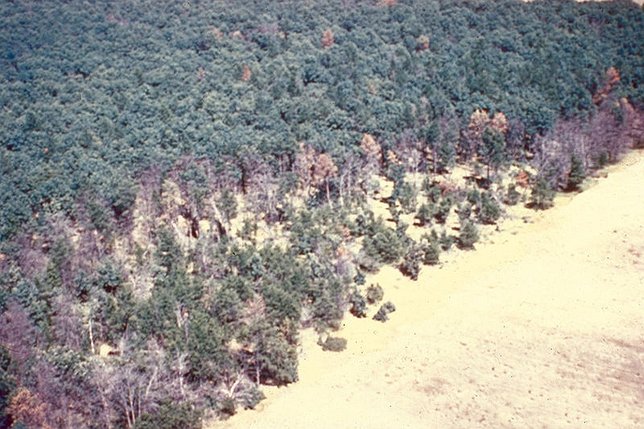Brooklyn / Suffolk County, NY - December 29, 2016 - New York State's Department of Environmental Conservation (DEC) and Department of Agriculture and Markets (DAM) announced today that the oak tree disease, oak wilt, has been detected in the borough of Brooklyn, Kings County and in the towns of Babylon, Islip, Riverhead, and Southold in Suffolk County. The disease was identified by the Cornell Plant Disease Diagnostic Clinic after samples from symptomatic oak trees were collected by DEC Forest Health Technicians.
Oak wilt had previously been found in Scotia, Schenectady County, until it was identified in Canandaigua, Ontario County, and Central Islip, Long Island earlier this year. Since then, reports of symptomatic oak trees from concerned tree care professionals, as well as the public, have led to the additional detections. The confirmation of the disease in Brooklyn marks the fourth county where oak wilt has been confirmed in New York.
There is no known treatment to contain and kill the oak wilt fungus other than to remove the infected trees, as well as any surrounding host oak trees. At this time, DEC will remove and destroy oaks that have tested positive for the fungus. Testing for oak wilt must be done during the growing season when the fungus is active, so intensive sampling will take place across Kings, Nassau, and Suffolk counties starting next spring to determine the extent of the disease. Aerial surveys will be conducted beginning in July when signs of oak wilt will be most apparent.
DEC is in the process of issuing emergency orders to establish protective zones encompassing the entirety of Suffolk County and the borough of Brooklyn. The emergency orders will prohibit the removal of any living, dead, standing, cut, or fallen oak trees or any portion thereof, including branches, logs, stumps, or roots, and green oak lumber and firewood (of any species) out of the protective zones unless it has been chipped to less than one inch in two dimensions.
"It is important that these emergency orders are taken seriously," said DEC Commissioner Basil Seggos. "Moving contaminated wood without taking precautions will spread this serious tree-killing disease to additional areas."
State Agriculture Commissioner Richard A. Ball said, "Oak wilt is a fast-moving disease that can kill a large amount of trees quickly. It is important to follow these emergency orders closely to prevent the disease from spreading and protect our trees."
Property owners in neighborhoods confirmed to have oak wilt will be contacted with information about the disease and to provide communities with information about how to help protect remaining oak trees. DEC will schedule public meetings to address questions and concerns once the extent of the disease is determined and management activities have been identified to control the disease. DEC will also conduct outreach to green professionals on the identification of oak wilt and preventing its spread.
Oak wilt is a serious tree disease in the eastern United States, killing thousands of oaks each year in forests, woodlots, and home landscapes. It is caused by a fungus, Ceratocystis fagacearum. The fungus grows in the water conducting vessels of host trees plugging up these vessels and preventing water transport. As water movement within the tree is slowed, the leaves wilt and drop off, and the tree dies rapidly.
DEC asks the public to be on the lookout next summer for oak trees that suddenly lose leaves during the months of July and August and to report these occurrences to the Forest Health Information Line toll-free at 1-866-640-0652.
For more information about oak wilt or the emergency order, please visit DEC's website.










